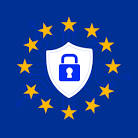

NIS2

NIS2
The NIS2 Directive is the EU’s updated cybersecurity regulation, enhancing resilience across critical sectors such as energy, finance, healthcare, digital infrastructure, and public administration. It expands coverage to medium-sized businesses, mandates stricter risk management measures (including incident response, supply chain security, and business continuity planning), and requires significant cyber incidents to be reported within 24 hours. Non-compliance can result in heavy fines (up to €10 million or 2% of annual revenue) and executive liability. NIS2 also strengthens cooperation between EU states, promoting a unified approach to cybersecurity. Organizations operating in or serving the EU must ensure compliance before the October 17, 2024 deadline.
Establish and maintain a comprehensive NIS2 compliance framework.
-
Governance and Management - NIS2.FR.GM.1
Establish clear governance structures and management responsibilities for NIS2 compliance.
-
Risk Management and Security Policies - NIS2.FR.RP.2
Develop and implement risk management and cybersecurity policies aligned with NIS2.
-
Framework Review and Improvement - NIS2.FR.RI.3
Regularly review and improve the NIS2 compliance framework to ensure effectiveness and adapt to evolving threats.
Implement robust cybersecurity risk management measures as required by NIS2.
-
Risk Assessment and Analysis - NIS2.RM.RA.1
Conduct regular and comprehensive risk assessments to identify and analyze relevant cybersecurity risks.
-
Security Measures Implementation - NIS2.RM.SM.2
Implement and maintain appropriate technical organizational and procedural security measures to mitigate identified risks.
-
Incident Handling - NIS2.RM.IH.3
Establish and maintain incident handling procedures to effectively manage and respond to cybersecurity incidents.
-
Business Continuity and Crisis Management - NIS2.RM.BC.4
Implement business continuity and crisis management plans to ensure operational resilience in case of significant incidents.
-
Supply Chain Security - NIS2.RM.SC.5
Address cybersecurity in the supply chain including security aspects related to direct suppliers and service providers.
-
Network and Information Systems Security - NIS2.RM.NS.6
Implement measures to ensure the security of network and information systems.
-
Security Awareness Training and Cyber Hygiene - NIS2.RM.ST.7
Conduct regular security awareness training for staff and promote cyber hygiene practices.
-
Cybersecurity Policies and Procedures - NIS2.RM.PP.8
Develop and implement specific cybersecurity policies and procedures for various security domains.
-
Cryptography and Encryption - NIS2.RM.CE.9
Implement cryptography and encryption measures to protect data confidentiality and integrity.
-
Vulnerability Management and Security Testing - NIS2.RM.VM.10
Establish vulnerability management and security testing practices to identify and address security weaknesses.
-
Access Control and Identity Management - NIS2.RM.AI.11
Implement strong access control and identity management measures to manage user access and permissions.
Develop and maintain specific cybersecurity capabilities as required by NIS2.
-
Incident Detection Capabilities - NIS2.CC.ID.1
Implement capabilities for timely and effective detection of cybersecurity incidents.
-
Security Logging and Monitoring - NIS2.CC.LM.2
Implement comprehensive security logging and monitoring to provide visibility into security events.
-
Network Security Capabilities - NIS2.CC.NS.3
Implement network security capabilities to protect against network-based threats.
-
Endpoint Security Capabilities - NIS2.CC.ES.4
Implement endpoint security capabilities to protect user devices and prevent endpoint-based attacks.
-
Data Backup and Recovery Capabilities - NIS2.CC.BR.5
Implement data backup and recovery capabilities to ensure data availability and business continuity.
-
Vulnerability Scanning Capabilities - NIS2.CC.VS.6
Implement vulnerability scanning capabilities to regularly identify security vulnerabilities in IT systems.
-
Security Assessment Capabilities - NIS2.CC.SA.7
Develop security assessment capabilities to evaluate the effectiveness of security measures and controls.
Establish cybersecurity communication and reporting mechanisms as required by NIS2.
-
Incident Reporting to Authorities - NIS2.CR.IA.1
Establish procedures for reporting significant cybersecurity incidents to competent authorities as required by NIS2.
-
Internal Incident Communication - NIS2.CR.IC.2
Establish internal communication channels and procedures for cybersecurity incidents.
-
Public Communication on Incidents - NIS2.CR.PC.3
Establish guidelines for public communication regarding significant cybersecurity incidents.
-
Cybersecurity Information Sharing (Voluntary) - NIS2.CR.IS.4
Establish mechanisms for voluntary sharing of cybersecurity information with relevant stakeholders and communities.
Implement specific measures for Digital Service Providers as outlined in NIS2.
-
Specific Security Measures for DSPs - NIS2.DSP.SM.1
Implement specific security measures applicable to Digital Service Providers as defined in NIS2 Article 19.
-
Designated Representative within EU - NIS2.DSP.DR.2
Designate a representative within the European Union if the DSP is not established in the EU.
Comply with the NIS2 supervisory and enforcement framework.
-
Cooperation with Competent Authorities - NIS2.SE.CA.1
Cooperate fully with competent authorities in their supervisory and enforcement activities related to NIS2.
-
Information Provision to Authorities - NIS2.SE.IP.2
Provide necessary information to competent authorities for supervisory purposes as required by NIS2.
-
Remediation of Identified Deficiencies - NIS2.SE.RD.3
Implement remediation actions to address any deficiencies identified during supervisory activities or audits.
-
Compliance with Enforcement Actions - NIS2.SE.CE.4
Comply with enforcement actions and measures imposed by competent authorities in case of NIS2 breaches.